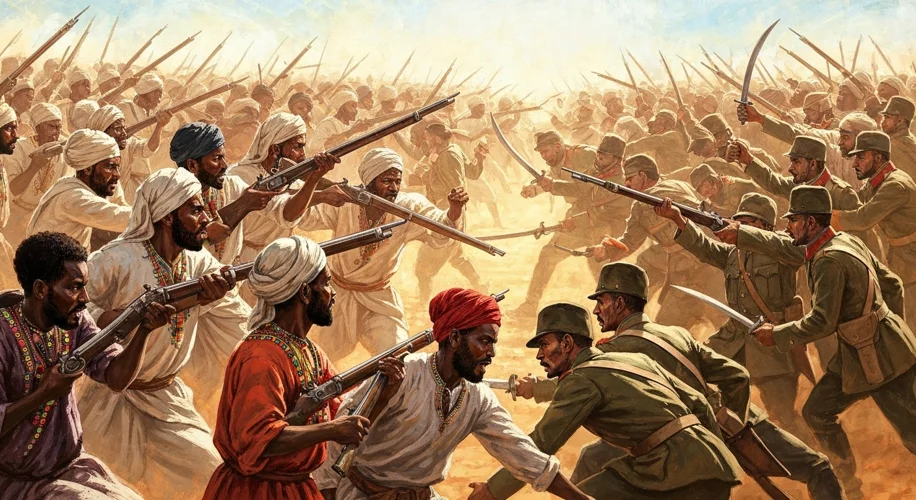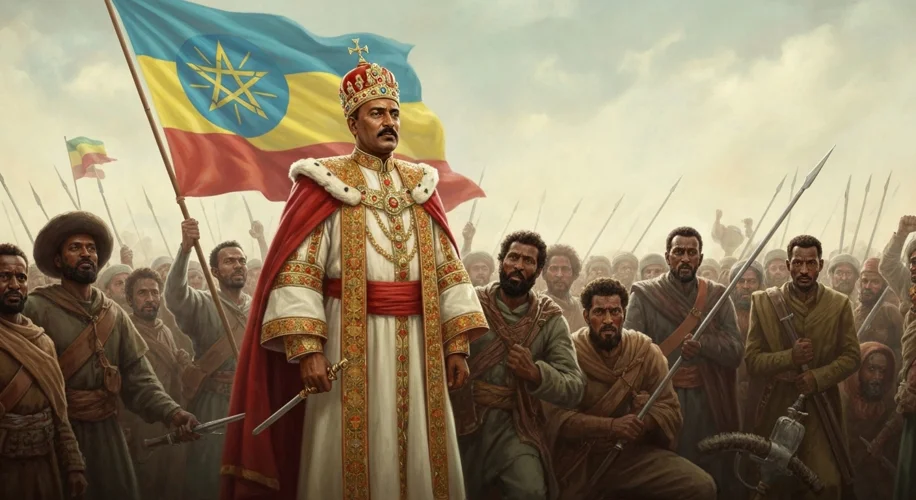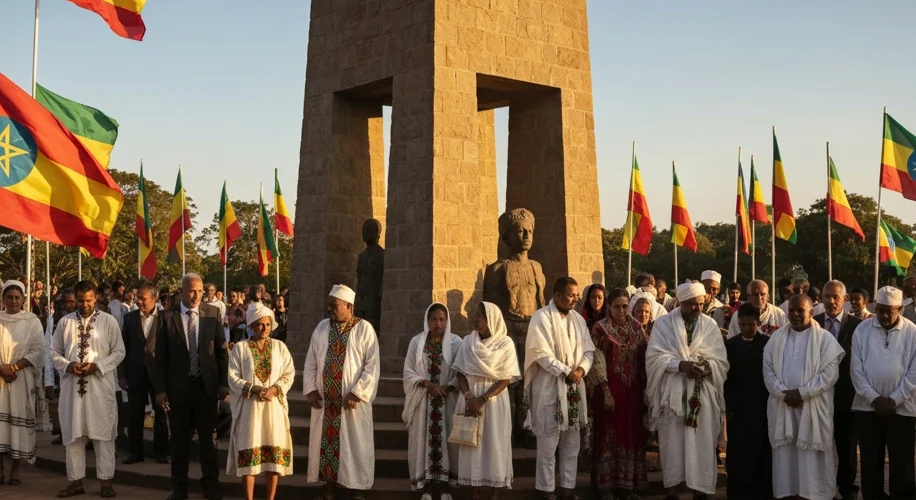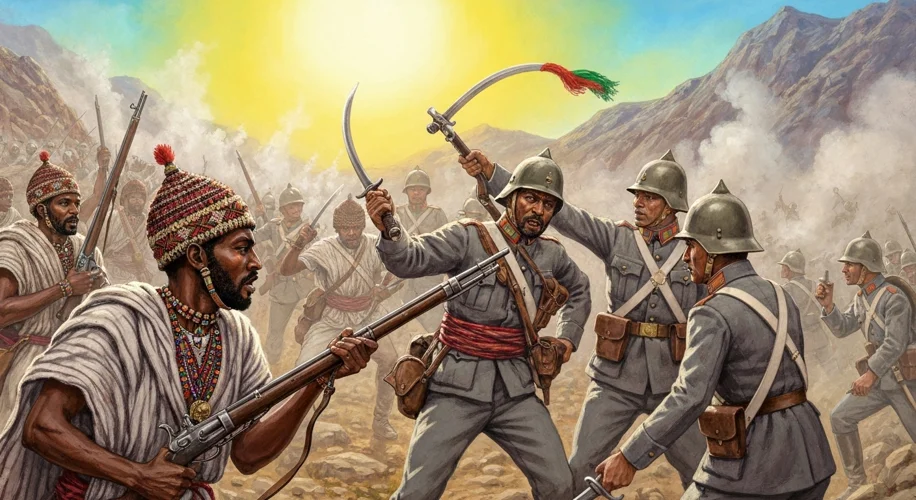The year is 1896. The air in Ethiopia is thick with anticipation, a potent blend of dust, sweat, and the unspoken fear that has gripped a nation. For months, the thunderous march of the Italian colonial army has been echoing across the highlands, a seemingly unstoppable force bent on subjugating Africa’s oldest independent nation. But on March 1, 1896, at the dusty plains of Adwa, a different kind of echo would reverberate across the continent and the world – the triumphant roar of an African army that dared to defy the myth of European invincibility.
For centuries, the continent of Africa had been systematically carved up by European powers in what historians call the ‘Scramble for Africa.’ Ethiopia, under the visionary leadership of Emperor Menelik II, stood as a beacon of defiance. Unlike many of its neighbors, Ethiopia had managed to maintain its sovereignty, a testament to its rich history, its formidable warrior culture, and Menelik’s astute diplomacy and military modernization.

The Italian objective was clear: to expand their colonial foothold in the Horn of Africa and to avenge the humiliating defeat of Italian forces at the Battle of Dogali a decade prior. They marched with over 17,000 well-armed soldiers, confident in their technological superiority and the prevailing racist ideologies that deemed Africans inherently inferior. Their confidence, however, was about to be shattered.
Emperor Menelik II, a man of formidable intellect and strategic prowess, had been quietly preparing. While outwardly engaging in diplomatic negotiations with Italy, he was simultaneously amassing an impressive arsenal. He skillfully played European powers against each other, acquiring modern rifles and artillery from Russia and France. More importantly, he rallied an Ethiopian army estimated to be between 70,000 and 100,000 strong, a diverse force comprising warriors from across the empire, united by a common cause: the defense of their homeland.
The battle itself was a brutal, chaotic affair. The Italian general, Oreste Baratieri, underestimated the Ethiopian resolve and the tactical genius of Menelik. He advanced into a territory that was ill-suited for his European-style warfare, and crucially, he failed to understand the sheer scale of the Ethiopian mobilization and their intimate knowledge of the rugged terrain.
The Ethiopian forces, under commanders like Ras Makonnen, Ras Alula, and Taytu Betul, skillfully outmaneuvered the Italians. They launched devastating counter-attacks, overwhelming the Italian brigades. The Ethiopian soldiers, fighting with the ferocity of those defending their homes and families, inflicted a catastrophic defeat on the invaders. Thousands of Italian soldiers were killed or captured, while Ethiopian casualties, though significant, were far lower in proportion to the attacking force.
The victory at Adwa was not just a military triumph; it was a seismic event with profound consequences. For the first time in modern history, an African nation had decisively defeated a European colonial power on the battlefield. The myth of European invincibility was irrevocably shattered. This stunning victory sent shockwaves across Africa, inspiring resistance movements and fanning the flames of pan-Africanism. It demonstrated that independence was not an impossible dream, but a tangible reality that could be fought for and won.
Adwa became a potent symbol of African pride and self-determination. It reinforced Ethiopia’s status as a sovereign nation and a symbol of African heritage, a status it would maintain through the tumultuous 20th century. The victory resonated far beyond Africa, influencing intellectuals and activists in the diaspora, including figures like W.E.B. Du Bois, who saw in Adwa a powerful testament to African capability.

The battle was a masterclass in utilizing indigenous knowledge, strategic diplomacy, and rapid modernization. Menelik II understood that to resist the tide of colonialism, Ethiopia needed to adapt, but not at the cost of its soul. He embraced modern weaponry while retaining the spirit and fighting prowess of his people.
The echoes of Adwa continue to resonate today. It stands as a powerful reminder of Africa’s rich history of resistance and its enduring spirit. It’s a story that deserves to be told and retold, a testament to the courage of a people who, against all odds, etched their defiance into the annals of history, proving that the destiny of a continent could indeed be forged by its own hands.


